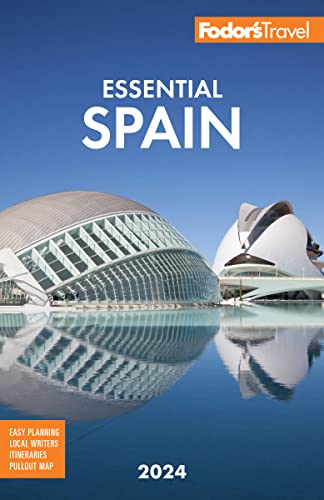Lodging
By law, hotel prices in Spain must be posted at the reception desk and should indicate whether the value-added tax (I.V.A. 10%) is included. Note that high-season rates prevail not only in summer but also during Holy Week and local fiestas. In much of Spain, breakfast is normally not included.
Hotels and Bed-and-Breakfasts
The Spanish government classifies hotels with one to five stars, with an additional rating of five-star GL (Gran Lujo) indicating the highest quality. Although quality is a factor, the rating is technically only an indication of how many facilities the hotel offers. For example, a three-star hotel may be just as comfortable as a four-star hotel but lack a swimming pool.
All hotel entrances are marked with a blue plaque bearing the letter H and the number of stars. The letter R (for residencia) after the letter H indicates an establishment with no meal service, with the possible exception of breakfast. The designations fonda (F), pensión (P), casa de huéspedes (CH), and hostal (Hs) indicate budget accommodations: these are no longer official categories, but you'll still find them across the country. In most cases, especially in smaller villages, rooms in such buildings will be basic but clean; in large cities, these rooms can be downright dreary.
When inquiring in Spanish about whether a hotel has a private bath, ask if it's an habitación con baño. Although a single room (habitación sencilla) is usually available, singles are often on the small side. Solo travelers might prefer to pay a bit extra for single occupancy of a double room (habitación doble uso individual). Make sure you request a double bed (cama de matrimonio) if you want one—if you don't ask, you will usually end up with two singles.
The Spanish love small country hotels and agritourism. Rusticae (www.rusticae.es) is an association of more than 170 independently owned hotels in restored palaces, monasteries, mills, and estates, generally in rural Spain. Similar associations serve individual regions, and tourist offices also provide lists of establishments. In Galicia, pazos are beautiful, old, often stately homes converted into small luxury hotels; Pazos de Galicia (www.pazosdegalicia.com) is the main organization for them. In Cantabria, casonas are small-to-large country houses, but they may not have individual websites, so check the regional tourist office websites for booking and contact information.
A number of casas rurales (country houses similar to B&Bs) offer pastoral lodging either in guest rooms or in self-catering cottages. You may also come across the term finca, for country estate house. Many agroturismo accommodations are fincas converted to upscale B&Bs.
Paradores
The Spanish government operates nearly 100 paradores—upscale hotels often in historic buildings or near significant sites. Rates are reasonable, considering that most paradores have four- or five-star amenities, and the premises are invariably immaculate and tastefully furnished, often with antiques or reproductions. Each parador has a restaurant serving regional specialties, and you can stop in for a meal without spending the night. Paradores are popular with foreigners and Spaniards alike, so make reservations well in advance.




